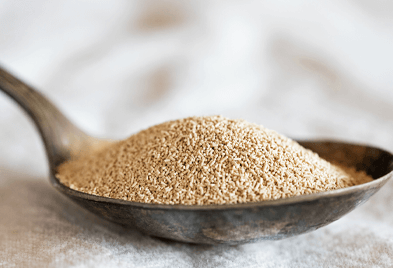As mentioned earlier, most vegetarians and older people are prone to a deficiency of vitamin B12. However, the low levels can also be a consequence of your body not being able to use or absorb this vitamin from the intestinal tract due to some underlying disease like pernicious anaemia., or an absence of intrinsic factor, which is a protein secreted by the cells of the stomach lining that attaches itself to Vitamin B12 and carries it to the intestine to be absorbed.
Why Are Vegetarians Prone to a B12 Deficiency?
Given that Indians are fast turning towards veganism and vegetarianism, it is vital they understand the importance of supplementing with B12 foods vegetarian in India. This is because they’re at a higher risk of vitamin B12 deficiency than their non-vegetarian counterparts.
The reason is, vitamin B12 rich food is majorly found among animal-based products like meat and dairy products. Therefore, maintaining proper levels of vitamin B12 in the body is a challenge for people following a strict vegetarian diet.
Since the early signs and symptoms associated with a lack of B12 are subtle, the deficiency often goes undiagnosed for years.
Vitamin B12 Deficiency: Common Signs and Symptoms
When your body doesn’t receive enough of vitamin B12, it results in a deficiency of this vitamin. A severe lack of vitamin B12 foods vegetarians in India can result in potentially irreversible neurological disorders in the body.
Your body may give some or all of the following signs to signal a lack of this vitamin:
Yellow/Pale Skin:
As vitamin B12 plays a critical role in the formation of red blood cells, a lack of B12 can cause you to have pale skin with a yellowish tinge. Moreover, this condition can also cause megaloblastic anaemia in which the red blood cells become too large to pass through the bone marrow into the bloodstream.
Hence, with fewer RBCs travelling around your body, you can appear pale or jaundiced.
Weakness and Fatigue:
With a low level of RBCs that take oxygen to the cells, your body may lose the efficiency to transport oxygen throughout the body resulting in
weakness and fatigue. It is one of the most common and early symptoms of B12 deficiency.
A Sensation of Pins and Needles:
When your body is short of vitamin B12, it can start to experience nervous system damage. A fatty substance called Myelin surrounds your nerves and protects them from harm. A lack of vitamin B12 affects the production of this substance, and your nervous system may fail to work well.
This can cause a tingling sensation in hands and feet. However, it is vital to note that this feeling may be due to other underlying causes as well.
Balance and Coordination Problems in the Body:
A nervous system dysfunction due to severely insufficient vitamin B12 foods in your diet can also negatively affect your body’s sense of balance and coordination. It may change the way you walk or move.
Frequent Mouth Ulcers and Inflamed Tongue:
An inflamed tongue, also known as glossitis, is a painful condition characterized by tiny bumps and tongue discolouration. It can be an early indication of vitamin B12 deficiency. Additionally, some people can also experience other oral issues like mouth ulcers and prickling sensation on the tongue.
Shortness of Breath and Dizziness
With a vitamin B12 deficiency in your body, you may experience breathlessness and dizziness often, especially when you exert yourself. It happens as your body’s cells do not receive optimum oxygen due to lack of RBCs.
Vision Problems:
A blurred vision could be a result of damage to the optic nerve due to a lack of vitamin B12. The deficiency can impact the optic nerve signal between the brain and the eyes, affecting your vision.
Moodiness and Behavioural Changes:
An insufficient vitamin B12 doesn’t just affect you physically but mentally as well. Low levels of vitamin B12 interferes with signals to and from your brain and can cause problems like depression and anxiety in individuals. Moreover, a lack of this vitamin has often been linked to dementia and mood changes.
A Decline in Cognitive Abilities:
A person with a severely low vitamin B12 can also slowly start experiencing problems with memory, understanding and judgement ability.
Other signs and symptoms of B12 deficiency include muscle weakness, heart palpitations and digestive issues. Fix an appointment with your doctor if your body signals some of the above signs. A timely diagnosis and treatment plan can reverse most of the ill-effects of vitamin B12 deficiency.
Diagnosis and Vitamin B12 Reference Range
A proper diagnosis of a B12 deficiency is crucial as it is often mistaken for folate deficiency due to similarities in symptoms.
Your doctor will suggest a vitamin B12 blood test, also known as cobalamin test, if he suspects an insufficiency of the vitamin.
As part of the test, your doctor will take a blood sample and perform the test.
“The normal reference range for a vitamin B12
blood test is 200 – 900 picograms per millilitre (pg/mL).
Any value less than 200 pg/ml indicates a vitamin B12 deficiency in the person. However, a level higher than 900 pg/ml is rare as the body gets rid of the excess vitamin B12 through the urine.
Summary:
– Since vitamin B12 rich food is mainly found in animal-based products, vegetarians and vegans are more prone to a lack of vitamin B12.
– Some common signs and symptoms of vitamin B12 deficiency are yellow skin, weakness and fatigue, balance and coordination problems in the body, prickling sensation in hands and feet, breathlessness and moodiness.
– Doctors perform a blood test, known as cobalamin test to diagnose a vitamin B12 deficiency.
– The normal reference range for a vitamin B12 blood test is 200 – 900 picograms per millilitre (pg/mL).
To discuss your B12 requirements, consult with a dietitian on MFine to know more
 Gynecologist
Gynecologist General Physician
General Physician Orthopedician
Orthopedician Dietitian
Dietitian Pediatrician
Pediatrician Dermatologist
Dermatologist Psychiatrist
Psychiatrist Andrologist
Andrologist Diabetologist
Diabetologist Urologist
Urologist Gastroenterologist
Gastroenterologist General Surgeon
General Surgeon Endocrinologist
Endocrinologist Dentist
Dentist Cardiologist
Cardiologist Pulmonologist
Pulmonologist Fertility Specialist
Fertility Specialist Oncologist
Oncologist Neurosurgeon
Neurosurgeon Nephrologist
Nephrologist Neurologist
Neurologist Sports Medicine
Sports Medicine Cosmetologist
Cosmetologist



 1. Milk and Cheese
1. Milk and Cheese  2. Fortified Foods:
2. Fortified Foods: 3. Yoghurt
3. Yoghurt 4. Paneer
4. Paneer 5. Whey Powder
5. Whey Powder




 Prevents Anaemia
Prevents Anaemia Supports Bone Health
Supports Bone Health Improves Heart and Brain Health
Improves Heart and Brain Health Boosts Energy
Boosts Energy Reduces Moodiness
Reduces Moodiness Improves Texture of Skin and Nails
Improves Texture of Skin and Nails A Healthy Pregnancy
A Healthy Pregnancy





